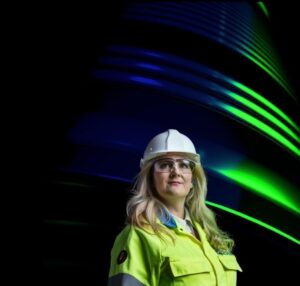OPINION: When it comes to packaging, steel has long been a recycling success story. With recycling rates for packaging steel above 80% across Europe (Steel for Packaging Europe), it already outperforms most other packaging materials.

Tata Steel UK’s decision to replace blast furnaces at Port Talbot with state-of-the-art Electric Arc Furnace (EAF) technology marks a significant new chapter, one that strengthens recycling loops, reduces carbon emissions, and changes the role of scrap in the UK economy.
Scaling up domestic scrap use
At present, the UK generates over 10 million tonnes of steel scrap each year and around 80% is currently exported overseas. Tata Steel’s £1.25 billion investment will change that dynamic. The new EAF will consume around 2.5 million tonnes of scrap annually, locking this secondary raw material into UK production and reducing the need for imported raw materials.
For packaging, this means that around 50% recycled content will be possible and from 2028, Tata Steel will supply high-quality construction steel with up to 80% recycled content.
Carbon savings and policy alignment
Conventional blast furnace routes are heavily reliant on coal, producing significant carbon emissions. EAF technology, by contrast, uses electricity to melt scrap or direct reduced iron, cutting carbon intensity dramatically.
For packaging producers and brands, this provides a practical route to reduce the embodied carbon of materials and meet Scope 3 emission targets. For the wider recycling sector, it is a clear example of how domestic remelting capacity can underpin both net-zero ambitions and UK resource security.
A stronger closed-loop system
Steel’s recyclability is already underpinned by its magnetic properties and endless reuse potential as a permanently available material.
The shift to EAF strengthens this system by ensuring higher levels of post-consumer scrap can be recovered, remelted and returned as new steels without degradation.
Future-proofing the circular economy
Tata Steel’s transition is more than a production upgrade; it is a reorientation of the UK’s steel sector towards low-carbon, circular production. For the recycling and waste management industry, it highlights the importance of retaining materials onshore and investing in infrastructure that supports high-quality, closed-loop material recycling.
Metals: Forging ahead
Join me at the Environmental Services & Solutions (ESS) Expo, taking place at the NEC Birmingham, 17–18 September 2025. On Thursday 18 September, 1:25–2:10PM, I will be speaking in the CARS, ELV & Metals Recycling Theatre as part of the panel “Metals: Forging Ahead: The Role of Recycling in the Future of the UK Steel Industry.”
The session will explore how scrap-based steelmaking and circular supply chains can reshape the UK steel industry – cutting emissions, reducing reliance on imports, and driving innovation.
The panel will be chaired by Mark Allan, Green Metals Group Leader, MPIUK, and will also feature: Antonia Grey, Head of Policy and Public Affairs, BMRA; David Wilkinson, Policy Adviser for Steel and Metals, Department for Business & Trade; John Bissett, Commercial Manager, 7 Steel; Jon Harrison, Regulatory Affairs Manager, UK Steel; alongside Nicola.
Don’t miss this chance to hear first-hand how recycled steel is set to become a cornerstone of a greener, more competitive UK steel industry.







Subscribe for free